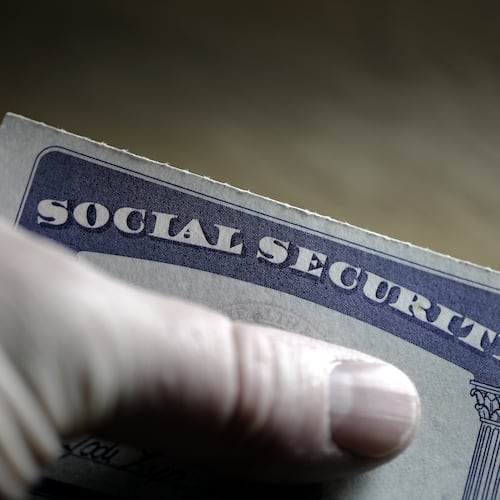The U.S. Supreme Court on Monday agreed to hear a case over New York’s gun-permit law, its first major foray into one of the nation’s most divisive political issues in more than a decade.
The case, titled NY State Rifle & Pistol Assoc. v. Corlett, revolves around whether the Second Amendment protects the right of individuals to carry concealed weapons outside their home for self-defense.
The court’s decision to take on the case follows mass shootings in recent weeks in Indiana, Georgia, Colorado, Wisconsin, and California and comes amid congressional efforts to tighten gun laws. President Joe Biden also has announced several executive actions to combat what he called an “epidemic and an international embarrassment” of gun violence in America.
The New York law requires license applicants to show that “proper cause exists” for a person to carry a concealed weapon. The Second Circuit Court of Appeals ruled in August the law is constitutional.
New York is one of eight states that limit who has the right to carry a weapon in public. The others are California, Delaware, Hawaii, Maryland, Massachusetts, New Jersey and Rhode Island.
Paul Clement, representing challengers to New York’s permit law, said the court should use the case to settle the issue once and for all. “Thus, the nation is split, with the Second Amendment alive and well in the vast middle of the nation, and those same rights disregarded near the coasts,” Clement wrote on behalf of the New York State Rifle & Pistol Association and two New York residents, as reported by Fox News.
In 2008 and 2010, the high court overturned handgun bans in Washington, D.C., and Chicago, respectively, according to NPR.
In those cases, a sharply divided court ruled the Second Amendment right to bear arms is an individual right, not one associated with the militia, as the court had previously implied. Those decisions marked a victory for the National Rifle Association and other gun rights organizations.
However, in the past decade, the court has largely avoided gun rights cases. This case marks the court’s first foray into gun rights since Justice Amy Coney Barrett came on board in October, making a 6-3 conservative majority.
The case is especially significant during the coronavirus pandemic, said Eric Tirschwell, the legal director of Everytown for Gun Safety, a gun control group backed by former New York Mayor Michael Bloomberg. “Gun violence has only worsened during the pandemic, and a ruling that opened the door to weakening our gun laws could make it even harder for cities and states to grapple with this public health crisis,” Tirschwell told the Associated Press.
The court had turned down review of the issue in June, before Justice Ruth Bader Ginsburg’s death.
Paul Clement, representing challengers to New York’s permit law, said the court should use the case to settle the issue once and for all. “Thus, the nation is split, with the Second Amendment alive and well in the vast middle of the nation, and those same rights disregarded near the coasts,” Clement wrote on behalf of the New York State Rifle & Pistol Association and two New York residents.
Calling on the court to reject the appeal, the state said its law promotes public safety and crime reduction and neither bans people from carrying guns nor allows everyone to do so.
Federal courts have largely upheld the permit limits. Last month an 11-judge panel of the federal appeals court in San Francisco rejected a challenge to Hawaii’s permit regulations in an opinion written by a conservative judge, Jay Bybee.
“Our review of more than 700 years of English and American legal history reveals a strong theme: government has the power to regulate arms in the public square,” Bybee wrote in a 7-4 decision for the 9th U.S. Circuit Court of Appeals.
The issue of carrying a gun for self-defense has been seen for several years as the next major step for gun rights at the Supreme Court, following decisions in 2008 and 2010 that established a nationwide right to keep a gun at home for self-defense.
In June, Justice Clarence Thomas, joined by Justice Brett Kavanaugh, complained that rather than take on the constitutional issue, “the Court simply looks the other way.”
But Barrett has a more expansive view of gun rights than Ginsburg. She wrote a dissent in 2019, when she was a judge on the federal appeals court in Chicago, that argued that a conviction for a nonviolent felony — in this case, mail fraud — shouldn’t automatically disqualify someone from owning a gun.
She said that her colleagues in the majority were treating the Second Amendment as a “second-class right, subject to an entirely different body of rules than the other Bill of Rights guarantees.”
About the Author
The Latest
Featured


